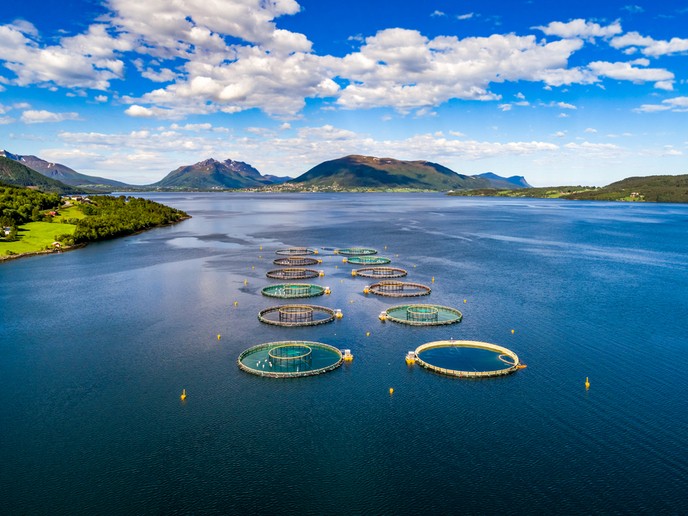Farmed salmon under threat? The effect of rising sea temperatures on Atlantic salmon production
In 2017, aquaculture production in the EU reached a decade high thanks to increased production of high-value species like salmon and seabass, according to a report by the European Market Observatory for Fisheries and Aquaculture Products (EUMOFA). The same report also shows that in 2015, per capita world consumption of fish was 8 % higher than in 2005, with Asia registering the highest growth, followed by Europe. With the consumption of fish and shellfish expected to rise further, and climate change rapidly affecting fisheries and habitats, it’s crucial to analyse the dynamics of fisheries and aquaculture production. The EU-funded ClimeFish project has been tackling this issue to help regulators, fish producers and aquaculture operators to predict, prepare and adapt to climate change. Partially supported by ClimeFish, a team of researchers found that since the 1980s, ocean temperatures off the Norwegian coast have risen by 1 °C on average, as noted in a news item by project partner Nofima. The researchers predict further increases over the next decades, likely causing problems for salmon farming. Salmon is the third most consumed farmed fish in the EU, according to EUMOFA. The team has examined the impact of different temperature scenarios on salmon farming, covering all 13 production regions in Norway for each decade between 2010 and 2069. Quoted in the same news item, Nofima scientist Dr Elisabeth Ytteborg says: “Even under the mildest scenario we see that rising ocean temperatures may pose a challenge for salmon.” The results of the study were published in the journal ‘Aquaculture’. “Though this study focuses on temperature as an example, it is also relevant to other climate variables. Furthermore, the findings are applicable for all types of aquaculture, including freshwater, as well as coastal fisheries and other aquatic activities.” According to the researchers, “climate model outputs must be evaluated against and calibrated to local conditions to be relevant for many aquaculture planning and management decisions, climate change impact assessment and climate adaptation strategies. Otherwise, adaptation plans and measures may not be appropriate or effective and may even be unintentionally misleading.” The researchers conclude: “Our research clearly shows that local scale conditions must be considered, using locally resolved climate projections, to develop meaningful adaptation plans to meet the growing demand for seafood in a changing climate.”
Temperature thresholds
Their study emphasises that for optimal salmon growth and feed intake, the ideal water temperature is between 8 and 14 °C, while at temperatures above 20 °C, growth stops and mortality increases. In the news item, Dr Ytteborg says: “New technologies, breeding for improved temperature tolerance and alternative farming locations are some of the solutions that could help maintain healthy fish.” She adds: “When it comes to determining which measures we should implement, we still don’t know enough about how the farmed salmon will react to higher temperatures, increased ocean acidification, and reduced oxygen. Our research has revealed major knowledge gaps in terms of both available datasets and the biology of salmon.” The ongoing ClimeFish (Co-creating a decision support framework to ensure sustainable fish production in Europe under climate change) project “will help to ensure that the increase in seafood production comes in areas and for species where there is a potential for sustainable Growth,” the project website states. For more information, please see: ClimeFish project website
Countries
Norway



